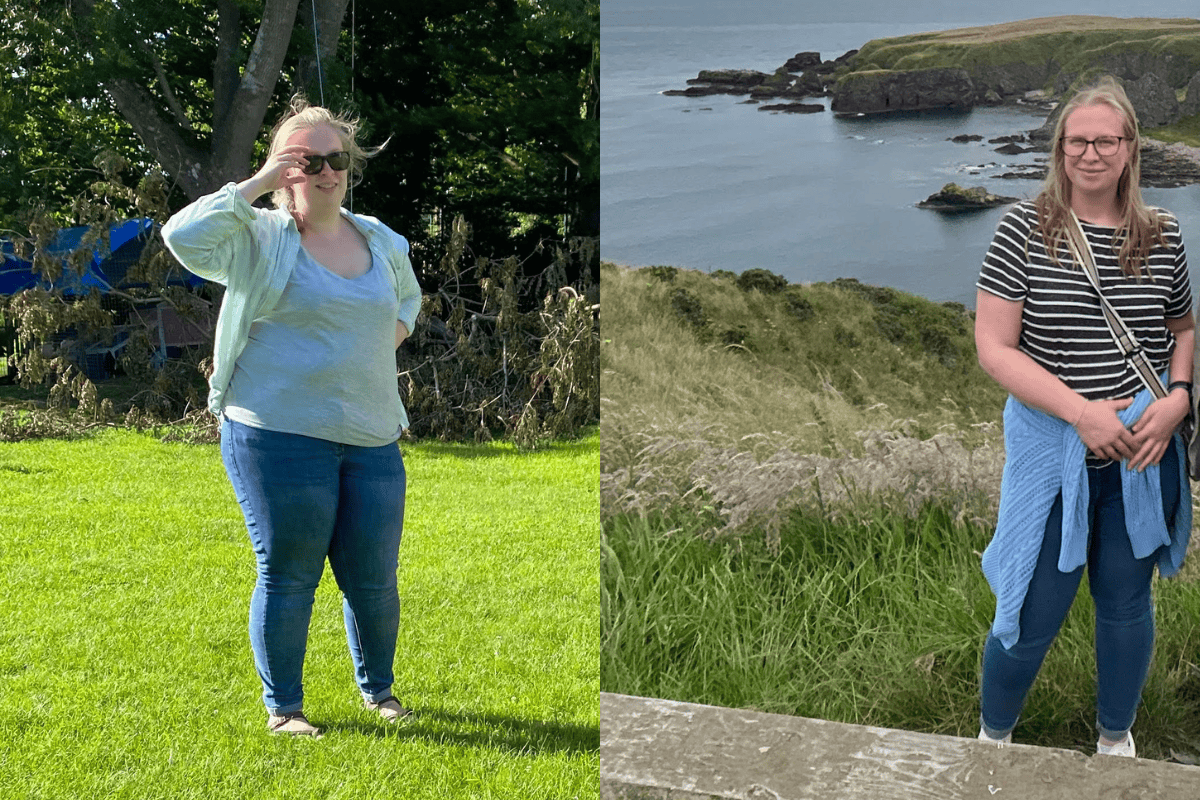Weight Loss Plateau Explained
The weight loss plateau is a common phase that can be frustrating, confusing and demotivating. It, therefore, often leads to many people giving up on their weight loss journey. However, the key to long-term success may simply lie in being aware of the weight loss plateau.
What is the weight loss plateau?
If you’re on a weight loss journey, it’s highly likely that you’ll experience a weight loss plateau. It can occur at any point during the journey, and is a period when it seems that you’ve stopped losing weight, despite carefully following an appropriate diet and lifestyle plan.
Unfortunately, the loss of momentum can hinder motivation for those who would be considered “yo-yo dieters”, often giving up hope and returning to old habits as soon as they’ve stopped losing weight and started experiencing a weight loss plateau. While it can be incredibly frustrating and often the reason people struggle to stick to a lifestyle change, it’s important to not be discouraged or disheartened, and carry on through until you see the other side of it.
Anticipating a weight loss plateau and accepting it as a very normal and common part of a weight loss journey means no surprises, less disappointment and being able to prepare for a healthy way of eating to overcome it. With the right mindset and some tips and tools, you will be able to come out the other side and continue on towards your ultimate weight loss goal.
Why do weight loss plateaus happen?
There is no single cause of the weight loss plateau. One reason may be that the body switches from using glucose to using its stores of glycogen (before then moving into fat-burning mode) when calories are significantly reduced. As the body uses glycogen, it is also excreting water, so many people experience an initial rapid weight loss as the body loses both fat and water. Once this initial “water weight” is lost, weight loss inevitably becomes more gradual as the body works to burn its fat stores.
Additionally, research has shown that a reduction in muscle mass during weight loss has a correlation with the weight loss plateau. This is because glycogen is stored in the muscle, so people can experience some loss of muscle mass, along with fat. Following a Mediterranean-style diet that is rich in protein, like The Fast 800, is one way to better maintain muscle mass while also losing fat. As muscle weighs more than fat in volume, weight loss can therefore seem more gradual, but the long-term benefit is not losing heavier muscle stores while burning fat.
Another consideration for explaining why a weight loss plateau occurs is that at a reduced body weight, your body expends less energy than it did at a heavier weight. This may appear as though you’ve stopped losing weight, but it may just be slowing down; at a reduced weight, you will burn less calories doing everyday activities, such as going for a walk, than you would have before. This is because it takes less energy to move less mass.
How can I reduce my risk of experiencing the weight loss plateau?
While it is normal to experience short periods of weight loss plateau, there are things you can do to reduce the likelihood of it happening. Maintaining lean muscle mass is crucial in reducing your risk of a weight loss plateau. By maintaining and building muscle mass where possible, your metabolic rate will stay the same or increase, and you will continue to lose weight.
As stated above, following a Mediterranean-style diet like The Fast 800 is one way to ensure you’re maintaining muscle mass. Additional ways to maintain muscle mass include:
- Consuming moderate amounts of protein;
- Increasing your intake of healthy fats (olive oil, avocado, salmon, etc.);
- Completing regular HIIT and resistance workouts; and,
- Increasing your incidental exercise to ensure you’re as active as part of your daily lifestyle.
If you are experiencing a weight loss plateau, The Fast 800 Programme is a great option to help get you through. All of our meal plans have been created with this in mind and are carefully calculated to make sure you reach protein targets.
How to break through a plateau
There’s no need to panic if you do find that you are experiencing a weight loss plateau; as we said, it’s very common, and it should just be a short phase. If you continue to exercise and eat the right foods, you will begin to lose weight again. For that period where it seems like there is nothing shifting, here are some strategies to make things a little easier:
- It’s first important to understand that the weight loss plateau occurs in the majority of people who are trying to lose weight. Just knowing that it may occur, and why it happens, will increase your chances of achieving your goals. Stress can have a huge impact on weight gain or stalled weight loss, with studies showing a correlation between the two, so worrying about the plateau may only make things more difficult. Consider adding mindfulness practices to your day, like a daily walk or a morning meditation to help keep stress levels down.
- Try a lower carb diet – research shows that diets low in carbohydrates can help you to flip your metabolic switch from burning sugar to burning fat. A meta-analysis found eating a diet with fewer than 50g carbohydrates per day can result in faster weight loss than a traditional weight loss diet.
All of the plans on our Online Programme follow a Mediterranean-style diet, naturally lower in carbohydrates. If you’re looking for quick weight loss, and are feeling motivated, The Fast 800 Keto plan is a great short-term option.
Start today and take our personalised assessment to determine the right meal plan and exercise level for you. Twelve weeks really can change your life, you just have to take the first step!
Start your journey today
- Continue to exercise and follow a Mediterranean-style diet: don’t forget that there are many other benefits to exercising and eating well that extend beyond weight loss. Both a Mediterranean diet and increased exercise have been recognised to improve blood sugars, and reduce the risk of heart disease and type 2 diabetes.
- Eat foods high in fibre: fibre is often overlooked, yet critically important for any healthy diet. Studies have found that fibre can help you feel full, removing the need for snacks throughout the day. When paired with protein and healthy fats, it’s a winning combo!
When following a lower carb diet, it can be difficult to achieve adequate fibre intake, if you’re unsure on how to do this, the Online Programme is a great tool as the calculations are done for you. All you have to do is eat the delicious food in your meal plan. Plus, if you are curious about knowing the ins and outs of your nutrition, all of the 850+ recipes on the Online Programme provide information about their calories, protein, fibre, carbohydrate and fat content. - Try TRE (time-restricted eating): a form of intermittent fasting that is simple to add to your weight loss plan. TRE involves reducing the window in which you consume calories, extending your fast, usually overnight. Multiple studies have shown those following a TRE method experience improved weight loss, alongside multiple, non-weight related benefits like improved sleep, lower stress levels and more energy.
If you’re new to fasting, start with 12:12 (12 hours of fasting, 12 hours of eating) and when you’re confident, you may wish to extend this to a 14-, or in some cases 16-, hour fast. During this time, you can choose to eat two or three meals a day. For extra guidance, we have meal plans catering for both two and three meals per day on our Online Programme. - Be aware that during this period, your weight staying the same is actually a positive. This is because you are not gaining any weight, therefore proving to yourself that you can keep the weight off. Maintenance is an important part of a weight loss journey!
Bueno NB, de Melo IS, de Oliveira SL, da Rocha Ataide T. Very-low-carbohydrate ketogenic diet v. low-fat diet for long-term weight loss: a meta-analysis of randomised controlled trials. Br J Nutr. 2013 Oct;110(7):1178-87. doi: 10.1017/S0007114513000548. Epub 2013 May 7. PMID: 23651522. https://pubmed.ncbi.nlm.nih.gov/23651522/











